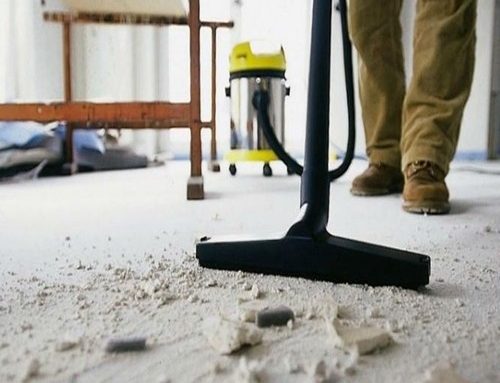Bacteria is around us all day every day. It breeds between 7 and 60 degrees celcius.
Although bacteria is a dirty word, not all bacteria is bad for us. Here are FAQ to shed some light on the subject and some cleaning tips to keep bacteria at bay.
Question: All bacteria is harmful to humans: False
On the contrary: humans need bacteria to live. In our intestines and on our skin there are billions of
micro-organisms, with only few of them being pathogens (germs!). In fact, some foods contain good bacteria that help fight off the germs in our bodies.
Question: The toilet is the dirtiest place in the house: False
Far greater sources of bacteria are the refrigerator and dish cloths. Additionally, it is now a well-known fact that a keyboard contains 400 times more germs than a toilet seat.
Tip: Use a disinfectant wipe to go over the most used items in the house every fortnight. Door handles, television remotes, microwave buttons, light switches are all touched and probably contain more germs than your toilet seat.
Question: You can use the same bath towel repeatedly without concern: False
Damp towels are ideal habitats for bacteria where they spread and stay until used again.
Tip: Always hang a used towel outside after using to ensure maximum dryness and fewer germs. This will also decrease odours and towel quality.
Question: Scratched Teflon pans are carcinogenic: False
Scratched Teflon pans are harmful only above 260 °C. Above this temperature, the coating called ‘polytetrafluoroethylene’ emits toxic fumes.
Tip: However, such temperatures can only be reached through a specific way of overheating so make sure you are using a standard burner when using these pans and not an industrial one made for professional kitchens.
Question: Cutting boards act as a nest for bacteria: False
If you clean your cutting board carefully, then it is fine to use a wooden or a plastic board. Woods contain resins and oils of germicidal features, and certain wood species also contain tannic acid, which is also germicidal.
Tip: When using plastic boards, it helps to kill bacteria if you put them in a dishwasher with around 60°C temperature.
Question: Bacteria dies in the freezer: False
At -18 °C, bacteria is still alive, it just can’t multiply at this temperature. As soon as the food starts getting thawed, bacteria begins to multiply again and at room temperature, the number of bacteria doubles every 20 minutes.
Tip: Check your freezer setting to ensure that your food is being safely stored. It is also ideal to de-frost your freezer during winter to ensure your settings are being insulated correctly. You can do this using boiling water, and a few cloths to soak up the water.
Question: With money, coins and note are swarmed with bacteria: False
Tests have proven that the metals in coins actually kills bacteria. On notes, only small amounts of bacteria exist, as they don’t provide proper living conditions for bacteria.
Question: No need to wash the dishwasher, because it is a ‘washer’! False
The inside of a dishwasher should be cleaned monthly. It is a perfect place for fungi and black yeast to grow.
Tip: Pour vinegar into a dishwasher-safe cup and place it on the top rack of the dishwasher (empty) and run it for a full cycle at a hot temperature.
Quesion: Wearing gloves is more hygienic than hand washing: False
Gloves can be very unhygienic. It is crucial to keep gloves clean and dry when being stored in the cupboard – they must also be changed regularly, at least once a month to minimise bacteria growth.
Tip: To clean, place them in the basin in hot water with two spoons of vinegar, a small amount of detergent and let them soak for 10 – 15 minutes. Rinse them thoroughly and then dry them in a cool place.
Question: The more soap means the more cleaning power: False
Not necessarily. Sometimes more soap can create more problems. Funnily enough, soap or detergent is a great nutrient for bacteria. Therefore, if you don’t rinse your hands, dishes, or clothes thoroughly it can aid the growth of bacteria.
Tip: If you can see any soap residue you haven’t rinsed well enough. Make sure all bubbles are gone and leave items in a place where they can completely dry.
If you are considering using a domestic cleaning contractor to help you keep your home clean, download our eBook to help selecting the best contractor to suit your needs. Not all cleaners are the same…





